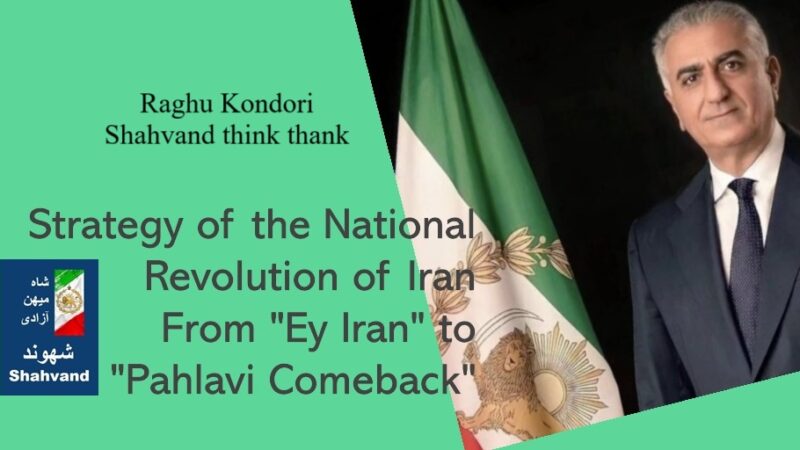Breaking the Abraham Accords Impasse: The Sirius Accord Solution

The Abraham Accords: A Diplomatic Shift or an Impasse? The Case for a Secular Iran and the Sirius Accord. By Raghu Kondori
The Abraham Accords: A Diplomatic Shift or an Impasse? The Case for a Secular Iran and the Sirius Accord
The Abraham Accords, signed in 2020, marked a groundbreaking shift in Middle Eastern geopolitics. These agreements, brokered by the United States, led to the normalization of relations between Israel and several Arab nations, including the United Arab Emirates (UAE), Bahrain, Sudan, and Morocco. They were hailed as a major diplomatic achievement, offering a framework for peace, cooperation, and economic partnerships. However, beneath the surface of these agreements lies an inherent limitation that questions their ability to secure long-term peace and stability in the region. These accords, while important, fail to address the root causes of the region’s tensions, particularly the unrelenting hostility towards Israel, and the deeply entrenched Islamist ideologies that underpin much of the Middle East’s political landscape.
The Limits of the Abraham Accords
While the Abraham Accords have led to diplomatic recognition and economic cooperation between Israel and the signatory Arab states, they have also exposed the fragility of these ties. The accords were largely driven by U.S. diplomatic pressure and the desire to counter the growing influence of Iran in the region. Arab states, particularly the Gulf nations, saw the normalization with Israel as a strategic move to bolster their security and economic interests. However, the real question remains: Does this diplomatic shift genuinely ensure Israel’s security in the long run, or is it merely a temporary measure?
-
Limited Diplomatic Ties: The normalization of relations under the Abraham Accords remains largely superficial. While trade and economic relations have flourished, full diplomatic and security cooperation has been sluggish. Many Arab leaders are reluctant to publicly embrace Israel due to the Islamic rejection of Israel and domestic pressures from Islamist groups and radical factions within their populations.
-
Economic and Intelligence Cooperation: The accords have led to significant economic partnerships, particularly in the realms of technology, trade, and tourism. Intelligence-sharing, especially related to countering Iranian aggression and terrorism, has strengthened ties between Israel and these nations. However, military alliances—which are crucial to Israel’s long-term security—remain underdeveloped, with no formal mutual defense agreements.
-
Islamic Extremism and Terrorism: A major flaw of the accords is the inability to address the continuing threat posed by Islamist groups such as Hamas and Hezbollah, both of which operate with support from Iran. Furthermore, radical factions within these Arab states continue to stir up public sentiment against Israel, complicating the possibility of sustained peace.
In essence, the Abraham Accords have not created a comprehensive, lasting peace for Israel. They have, instead, resulted in a fragile diplomatic framework that is heavily dependent on U.S. interests and the geopolitical calculations of the signatories.
The Sirius Accord: A New Vision for Middle Eastern Stability
To truly secure the future of Israel and create a lasting peace in the region, the Abraham Accords must be expanded into a broader regional alliance: The Sirius Accord. The key to this vision is the fall of the Islamic Republic of Iran, and the establishment of a secular, democratic Iran under the leadership of HRH Reza Pahlavi. A monarchist Iran, in alignment with Israel, would provide the stability, security, and strategic depth necessary to counter common threats in the region.
The Sirius Accord would aim to create a Middle Eastern security framework, one that goes beyond mere diplomatic recognition to include mutual defense, economic cooperation, and regional stability. It would also be based on the following principles:
-
Normalization of Relations: Expanding the normalization process beyond the Abraham Accords to include all key regional players, including Iran after regime change, Egypt, Jordan, and other moderate Arab nations. These countries would officially recognize Israel and establish full diplomatic relations.
-
Peace and Cooperation: A commitment to resolving longstanding conflicts in the region through peaceful means. This would require compromises on both sides, but it would be underpinned by a shared commitment to regional stability, with Iran’s democratic transformation serving as a unifying force.
-
Economic Partnerships: The Sirius Accord would focus on expanding trade, investment, and tourism between Israel and its new allies, creating a prosperous, interconnected region. Technological collaboration, particularly in energy, health, and agriculture, would be prioritized to benefit all signatories.
-
Security Coordination and Military Cooperation: Establishing a regional security pact to counter the influence of Iran’s Revolutionary Guards and their proxy forces. This would involve military coordination, joint exercises, and intelligence sharing, tailored to the region’s unique geopolitical realities.
-
Religious Tolerance and Secular Governance: The Sirius Accord would emphasize the secular nature of the regional alliance, promoting religious tolerance across the member nations. Islamist extremism, which continues to fuel much of the region’s violence and terrorism, would be systematically dismantled through education, reform, and interfaith dialogue.
-
Eliminating Terrorism and Rejecting BDS: The Sirius Accord would work to eradicate terrorism and radical Islamist groups that destabilize the region. The Boycott, Divestment, and Sanctions (BDS) movement against Israel would be explicitly rejected, ensuring that no member state participates in or supports efforts to delegitimize Israel.
The Case for Maximum Pressure and Maximum Support for Iran’s Liberation
For this vision to become a reality, the Islamic Republic of Iran must be overthrown. The only way to achieve this is through a strategy of maximum pressure paired with maximum support for the Iranian opposition. By backing HRH Reza Pahlavi, the leader of the Iranian opposition, the regime’s collapse can be expedited, paving the way for a secular, democratic Iran that would stand as a strong ally of Israel.
The Sirius Accord would offer a real solution to the ongoing instability in the region, moving beyond the impasse created by the Abraham Accords. The future of the Middle East lies in the hands of a free, democratic Iran, and by endorsing Reza Pahlavi and the opposition, the U.S. and its allies can help bring about the transformation needed for peace.
A Vision for the Future
The Abraham Accords have made important strides toward diplomatic normalization between Israel and select Arab nations, but they fall short of securing Israel’s long-term future. A more comprehensive approach is needed—one that includes a democratic Iran, regional cooperation, and security guarantees. The Sirius Accord presents a vision of peace and prosperity that can transform the Middle East, rooted in the values of secular governance, peace, and regional security. By supporting the liberation of Iran from the Islamic Republic, the West can help pave the way for a more peaceful, secure, and prosperous future for all nations in the region.
Make Iran Great Again! #MIGA
Shah Homeland Freedom


